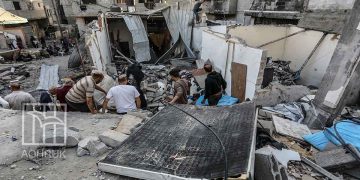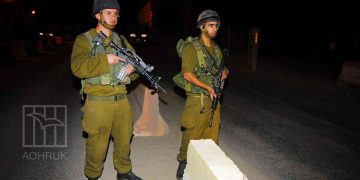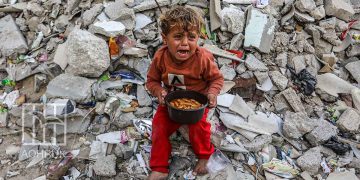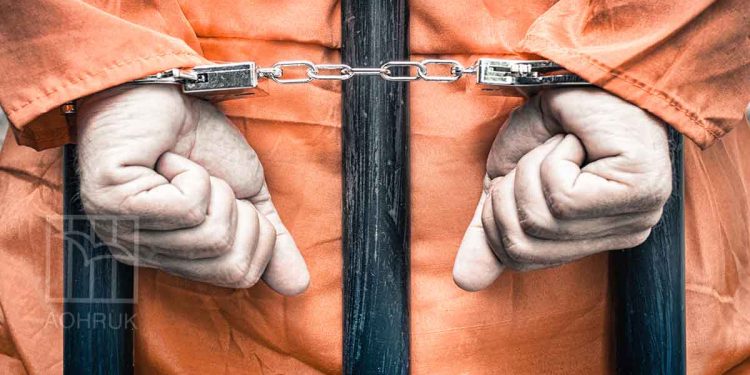This report aims to shed light on the plight of Palestinians on hunger strike in Israeli jails since 24th of April 2014 – under the country’s brutal “administrative detention” policy.
This policy has long been one of the main tools of repression adopted by Israeli forces to crush any form of Palestinian political activity inside the Occupied Territories since 1948, and especially after the 1967 occupation of the West Bank.
Administrative Detention is a procedure that allows the Israeli military to hold prisoners indefinitely on secret evidence without charge or trial.
Administrative Detention was used more intensively following the 1987 Palestinian Intifada (uprising) whereby those in authority were given additional powers to renew detention for indefinite periods. The number of Administrative Detention orders rose to 19,000 between 1987 and 1994.
In 1998, the pace of detentions slowed down until the number of administrative detainees at Megiddo Prison dropped to only 7 in 2000. When the second Intifada (Al-Aqsa) broke out in September of the same year, Administrative Detentions soared to reach 18,000 Palestinians, including children.
There are currently more than 200 administrative detainees in several prisons (Ofer, Negev and Megiddo, for example). Of those 11 are members of the Palestinian Legislative Council who had spent many years in detention.(The number of Administrative detainee rose due to the Israeli campaign in the West Bank)
Indefinite administrative detentions and Israel’s refusal to end this practice in the aftermath of the hunger strike on the 17th April 2012 which lasted 28 days, prompted Palestinian detainees to go on an open-ended strike from the 24th of April 2014 .
To the Detainees , the hunger strike is their last resort after exhausting all other available means. Israeli forces responded by moving many detainees to other prisons like in Al-Ramla and Hadarim in an attempt to put an end to the strike.
According to the prisoners, the most humiliating aspect of the abuse occurred when, on the third day of the strike, the Negev Prison director Ellen Bourda ordered that all prisoners be completely stripped, similar to what transpired in Abu-Ghraib in Iraq. Prisoners describe how they were roughly handcuffed then dragged out of their cells.
Every 20 prisoners were shoved into a cage, whilst handcuffed. Prisoners where then pulled out one-by-one and brought before several soldiers and prison administrators and ordered to take all their clothes off for inspection.
Those who refused to strip were physically assaulted. Prisoners were forced to completely strip under the threat of violence.
The soldiers would then march the prisoners, completely naked, and be subject them to vicious taunts about their body parts. Israeli soldiers would shout: “Where are all the Arabs? No one is as powerful as Israel. Arabs and Muslims are insects!”
Since the beginning of the strike and until the 7th of June 2014, more than 70 detainees have been taken to various Israeli hospitals following the deterioration of their health. Many could barely walk, some would be transported on wheelchairs.
Instead of heeding the voice of reason and upholding the law by submitting to the prisoners’ demands for justice, Israeli intransigence has only grown with the hunger strike.
Israeli officials have announced they would never release any of the detainees even if they all died as a result of the hunger strike. Steps are underway to enact a barbaric law that would allow for forceful feeding through a nose tube. This method is quite dangerous, painful, abusive and could lead to death if food finds its way to the lungs.
Israeli intransigence has not prompted international decision-makers to act, even if only for humanitarian reasons, to secure the release of administrative detainees. Nor has the international media paid much attention to the hunger strikers or the fact that some detainees’ health conditions have deteriorated drastically as the hunger strike entered its 60th day.
Even the International Committee of the Red Cross has failed to issue a single statement to demand the release of the detainees. This has only served to embolden Israel even further and insist on repressing the Palestinian detainees, some of whom are dying a slow death in hospitals and prisons.
When three Israelis disappeared in Hebron and Palestinians were accused of abducting them, the international media sprang to life along with officials from all over the world to denounce the abductions. The Red Cross issued a statement calling for the immediate release of the Israelis. In the meantime, Benyamin Netanyahu has been threatening to tighten the security grip on Palestinians amid calls in Israel for killing and deporting Palestinians, and night raids that led to the administrative detention of political activists. On the 16th of June, a raid on Al-Jalzoon refugee camp led to the death of the young Palestinian Ahmed Sabareen.(So far five Palestinians killed among them a child from Hebron).
The disappearance of three Israelis has been used as excuse to launch a wide-reaching campaign of collective punishment against Palestinians. More than 800 homes have been raided and some 200 Palestinians, including the speaker of the Palestinian Legislative Council Aziz Dweik, have been arrested. No one rushed to condemn the killing or urge Israel to end its acts of aggression against the Palestinians. The same story has been repeating itself since 1967.
Arab Organisation for Human Rights in the UK(AOHRUK) call upon the international community and decision-makers all over the world to take more assertive steps to put pressure Israel to end its repression of the Palestinians.
Israeli actions in the Occupied Territories constitute crimes of war and unless the international community adopts a firm stand, the situation will escalate to dangerous levels. We ask the international community to help find a fair and just solution to the plight of the administrative detainees on hunger strike.
The international community must speak in one voice and not turn a blind eye to Israeli crimes. It must also adopt a firm stand vis-à-vis the issue of administrative detention and all the other crimes perpetrated by Israel.






























